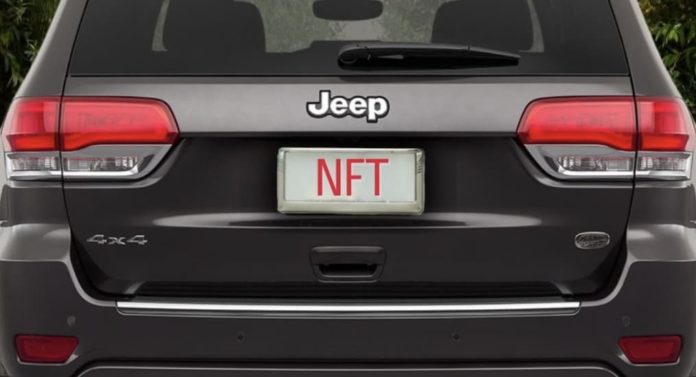Jerry Wilson was enjoying life behind the wheel of his new 2022 Jeep Grand Cherokee WK…then the thefts began. Everything was fine for the first couple of weeks, but as soon as Wilson started to settle in and start to really make the SUV his own, it began disappearing from his driveway during the night. Curiously, the thieves would leave the Jeep’s title behind––usually weighed down by a rock––an odd touch that didn’t make much sense until much later. What started as an isolated incident has grown into an unfortunate pattern of grand theft auto, with increasingly emboldened thieves swiping Wilson’s ride in broad daylight. At this point, Wilson can’t use a rest stop, grab a coffee or even pay a meter without worrying that the Jeep won’t be there when he returns, leaving the driver at his wit’s end.
Looking back, Wilson says it all started when his custom vanity license plates arrived in the mail. “When I had those generic paper temp plates on the Jeep, I didn’t have any issues,” he says. The pieces began to fall into place from there. Wilson, who financed the Jeep by offloading some of his investments in the burgeoning world of digital art, chose a vanity plate celebrating the windfall, a decision he now thinks might be responsible for the spate of thefts. The oft-stolen Jeep is distinctive for its bold styling and aggressive facade, but it’s the license plate reading “NFT” that Wilson believes has made it such an alluring target.
NFT or non-fungible tokens are a non-interchangeable unit of data stored on the same type of blockchain ledger that form the backbone of cryptocurrency. While many falsely assume that these NFTs take the form of digital art, music, or other collectibles, they’re actually more like a digital token of ownership, indicating that the owner retains the rights to the linked media.
To use an automotive analogy: an NFT is basically your vehicle’s title, not the vehicle itself. This has led to no small amount of confusion among investors, who believe they’ve bought something rather more tangible than a string of code. Adding to the chaos, a new breed of digital art thieves have entered the mix, hoping to capitalize on the massively profitable enterprise by stealing established NFT-linked media and “minting” a copy which can then be sold on to another unwitting investor.
This nebulous sense of ownership might not be a big issue when it comes to a .jpeg image file, but it’s an entirely different story with something as tangible as a vehicle. Thieves are under the impression that Wilson’s property can be treated like any other NFT one might right-click and save on the internet, leaving the vehicle’s title behind in a bid to skirt prosecution. “I think they’re under the impression that as long as they take the vehicle and not the title itself, it doesn’t really count as theft,” says Wilmington Police detective Michelle Moser. “We’re working on the case, but to be honest, it’s a little tough to get too motivated when the guy basically put a ‘steal me’ sign on his brand-new Jeep,” she says.
Wilson hoped the vanity plate would lead to some jealous stares from passing strangers who haven’t been as savvy as to invest their life savings in the pixel-based art bubble, but that hasn’t turned out to be the case. “So far, I’ve only had a few notes slipped under the windshield from nerds looking for tips on upgrading their GPUs and one very strongly worded letter from the IRS reminding me to report any crypto-related income,” says Wilson.
While some have derided NFTs as the latest crypto-related scam, some within the art world say that they’re just another chapter in a proud tradition of circle-jerking that stretches as far back as the Renaissance. “The art game has long been a thinly-disguised hustle, and NFTs are really just the most recent iteration,” says Ongo Gablogian, renowned art critic. “It’s all just a bunch of rich people making speculative investments on something they don’t truly understand in the hopes of turning a profit. Say what you want about your bored apes and whatnot, but in my opinion, they have exactly as much inherent value as both the Mona Lisa and an autographed urinal.”
Wilson says that while he plans to change his vanity plate to something decidedly less alluring, his immediate concern is filing the paperwork to legally change the name of his two-year-old son Crypto Wilson.












